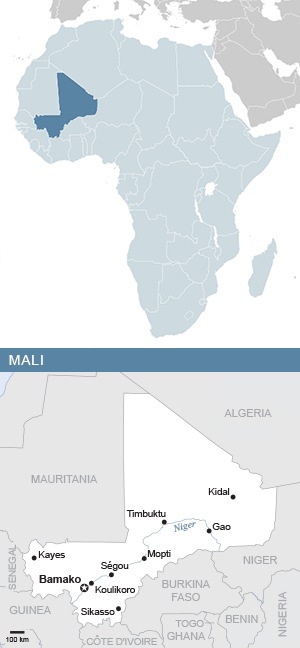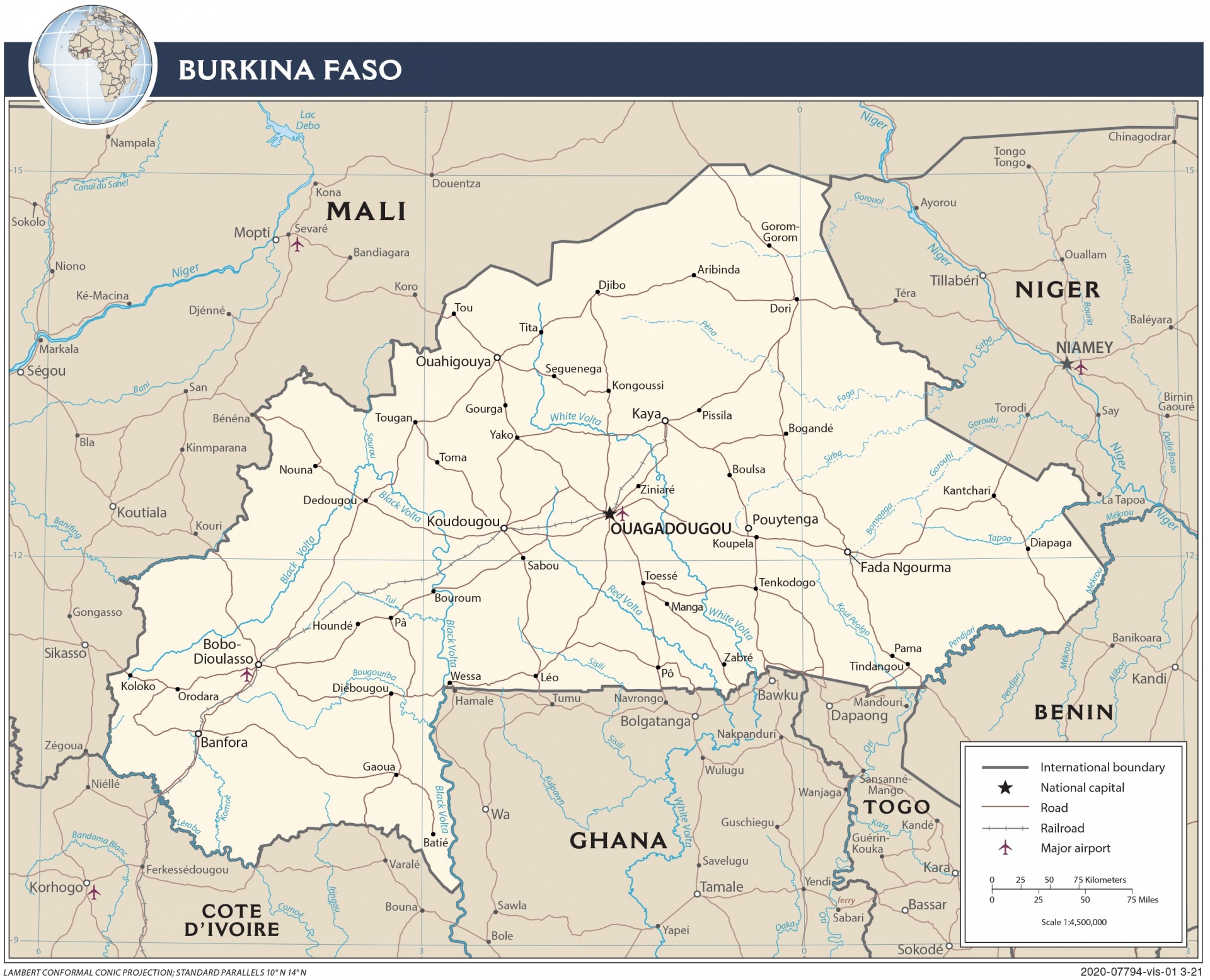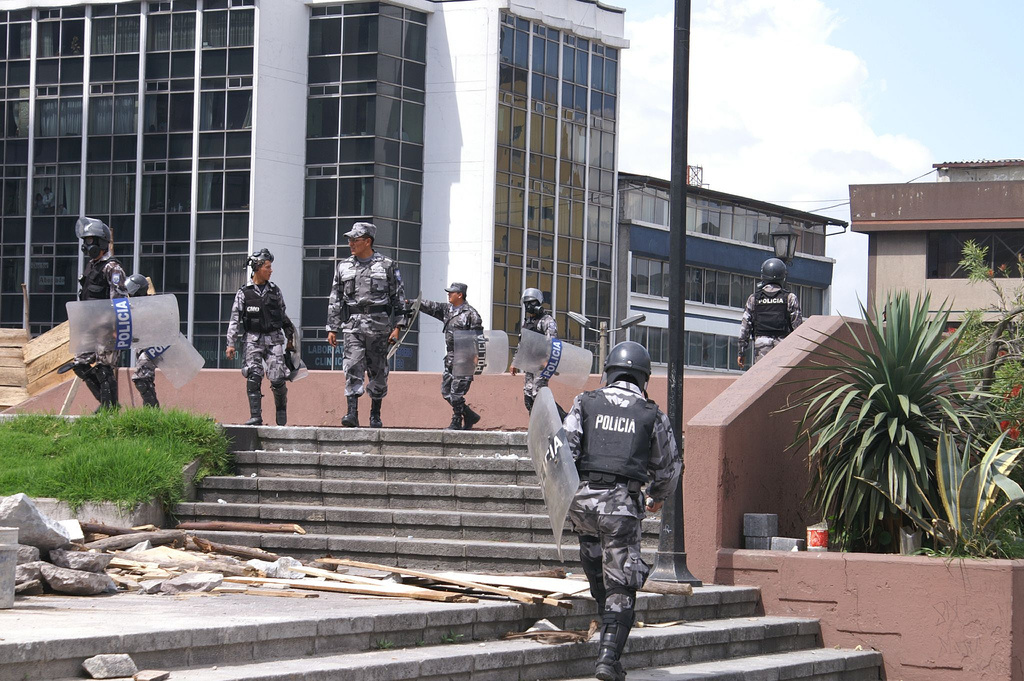
Map of Mali.
“More than nine of out of ten Malians have confidence in Russia to help their country in the face of jihadist insecurity.”
In its annual report gauging public interest on various topics in Mali, the German foundation Friedrich Ebert Stiftung (FES) has revealed deep—and sometimes counterintuitive—insights about how Malians think about the security situation in their country.[i] According to the accompanying news article from pan-African news aggregator AfricaNews.com,which summarized the FES report, one of the key takeaways of the poll is the deep trust that a vast majority of Malians appear to place in Russia’s ability to help the country address violence caused by its various jihadist insurgencies. As the article relays, “More than nine out of ten Malians have confidence in Russia to help their country in the face of jihadist insecurity,” with 69 percent of respondents “very confident” and 22 percent “rather confident.” Also, four out of five Malians viewed there to be no negative impact from the withdrawal of the French Operation Barkhane, while 48 percent of respondents instead noted that the security situation had improved with the French counterterrorism force’s departure.[ii] Another notable finding relates to Malian perspectives about their own defense and security forces: the most common sentiment expressed (by 58 percent of respondents) was the Malian defense and security forces represented a source of pride for the respondent. The next most common perception was that “I see them as my protectors,” a view offered by 36 percent of respondents. Only 1 percent said that “I have no confidence in defense and security forces,” and no respondent agreed with the sentiment that “I am afraid of the defense and security forces.” Given that Mali and its neighbor Burkina Faso are now the new epicenters of global jihadist terrorism-linked deaths,[iii] and both have engaged the Wagner Group,[iv] the findings of the FES report are perhaps counterintuitive for outside observers. Malians see security improving, their lots in life getting better, and they are generally satisfied with the military regime of Assimi Goïta and the way he is managing military and security affairs. The Wagner Group’s presence appears to be welcomed, and France is not missed. Such perspectives should be taken seriously as the United States and its allies seek to engage Mali and the broader region.
Sources:
“Les Maliens majoritairement confiants dans la Russie, selon un sondage, (A majority of Malians are confident in Russia, according to a poll),” AfricaNews (pan-African news aggregator), 4 May 2023. https://fr.africanews.com/2023/05/04/les-maliens-majoritairement-confiants-dans-la-russie-selon-un-sondage/
More than nine out of ten Malians have confidence in Russia to help their country in the face of insecurity and jihadism, indicates an opinion poll carried out by the German foundation Friedrich Ebert Stiftung and published on Wednesday.
Malians are also satisfied in the same proportions with the leader of the junta, Colonel Assimi Goïta, who took power by force in August 2020, this survey shows.
The junta severed a longstanding alliance with France and turned militarily and politically to Russia from 2021.
The Malian army has received several deliveries of Russian military equipment as well as the reinforcement of hundreds of men, Russian army instructors according to it, mercenaries from the private company Wagner, whose actions are decried, according to France and its western partners.
The survey indicates that 69% of respondents are very confident and 22% rather confident in Russian aid in the fight against insecurity.
The general situation of the country has improved for more than four out of five Malians (82%), a result in clear increase compared to previous years, says the survey.
Nine out of ten Malians say they are satisfied with the management of the so-called transition period pending a return of civilians to power scheduled for March 2024.
Three out of five believe that keeping to the schedule [of the transition of power] is not important, the study notes. The first stage of this calendar, a constitutional referendum scheduled for March 19, has been postponed to an unspecified date.
Notes:
[i] For a full copy of the FES report, in French, see: “Mali-Mètre 2023 – Enquête d’opinion, Fevrier 2023,” Friedrich-Ebert-Stiftung, May 2023. https://mali.fes.de/e/mali-metre-2023
[ii] For an example of the often-contentious relationship between Mali and France, especially regarding counterterrorism, see: Jason Warner, “Mali Claims France Funded Terrorists; France Denies,” OE Watch, 10-2022. https://community.apan.org/wg/tradoc-g2/fmso/m/oe-watch-articles-2-singular-format/428171
[iii] For more on the Sahel as a new epicenter for jihadist terrorism-linked deaths, see: Jason Warner, “Global Terrorism Declined Slightly in 2022, ith the Sahel as the New Epicenter,” OE Watch,05-2023.; Jason Warner, “African Leaders, UN See Terrorism in the Sahel as Dire,” OE Watch, 11-2022. https://community.apan.org/wg/tradoc-g2/fmso/m/oe-watch-articles-2-singular-format/429303
[iv] For more on how Mali and Burkina Faso have each approached their relationships with the Wagner Group, see: Jason Warner, “Mali Defends Reliance on Russian Counterterrorism Assistance,” OE Watch, 03-2023. https://community.apan.org/wg/tradoc-g2/fmso/m/oe-watch-articles-2-singular-format/437332; Jason Warner, “Burkina Faso Fights Terrorism With Recruits and Russia,” OE Watch, 02-2023. https://community.apan.org/wg/tradoc-g2/fmso/m/oe-watch-articles-2-singular-format/436264
Image Information:
Image: Map of Mali
Source: https://southafrica-info.com/africa/africa-from-a-to-z/attachment/map-of-africa-and-mali/
Attribution: Creative Commons 4.0


